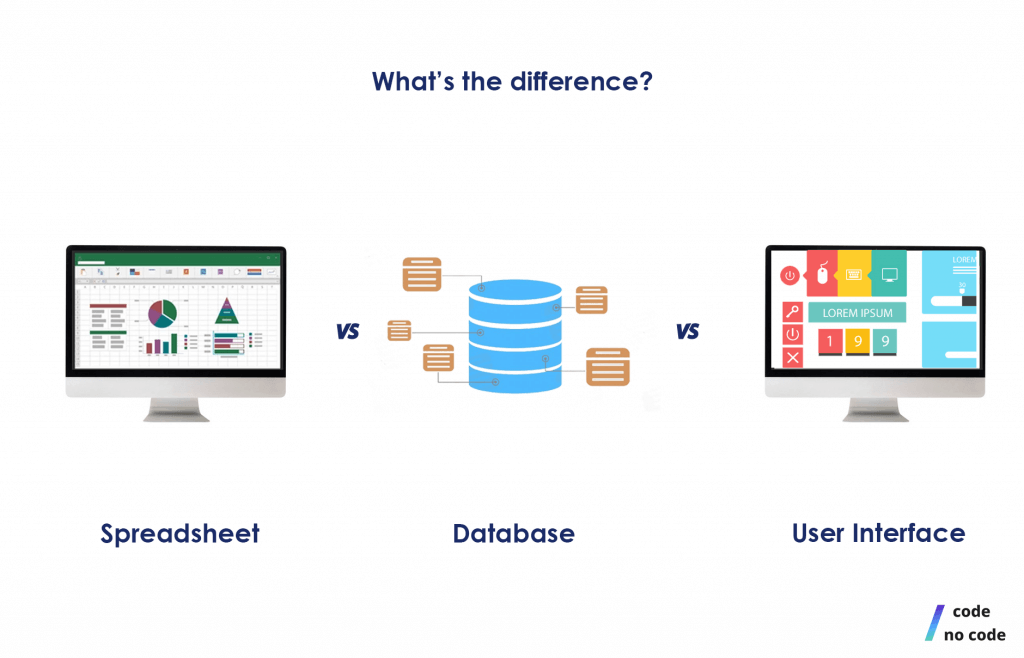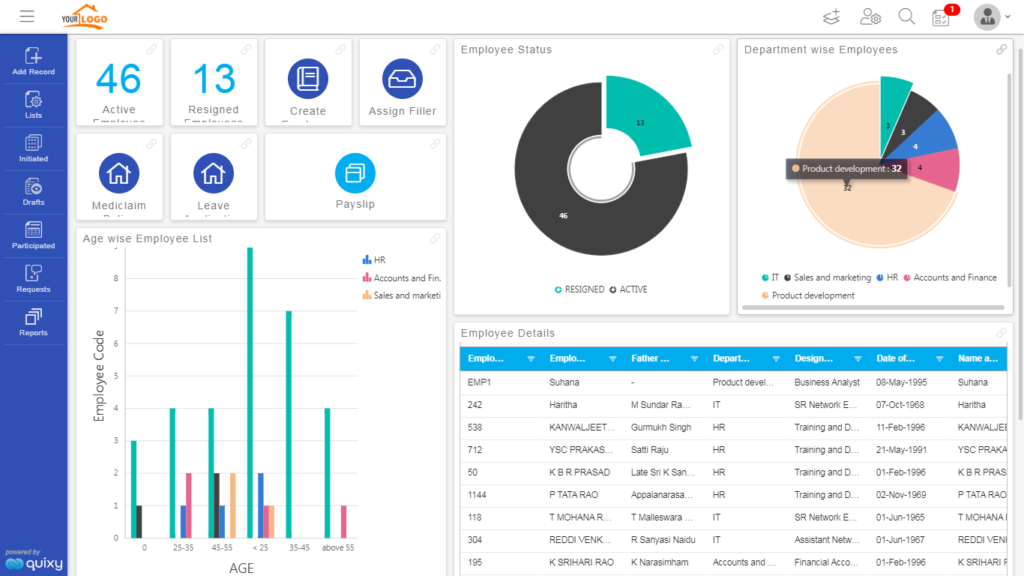Checking Out the Advantages of Scalable Data Sources That Need No Coding Skills for Efficient Information Administration Solutions
The development of scalable data sources that remove the necessity for coding skills offers a transformative possibility for organizations seeking effective information management services. As we think about the effects of such improvements, it becomes important to analyze exactly how they can improve the landscape of information monitoring and drive lasting development in a competitive environment.
Enhanced Ease Of Access for Individuals
Boosted access for customers is a critical aspect of scalable databases, guaranteeing that data administration systems are user-friendly and easy to use. In a period where data-driven choices are vital, availability enables a broader variety of individuals, including those without comprehensive technical competence, to engage with database systems effectively. This democratization of data accessibility promotes boosted partnership across departments, encouraging workers to make and draw out insights informed choices.
Easy to use interfaces, such as aesthetic information and drag-and-drop functions representation, streamline complicated data communications. These improvements decrease the learning contour connected with standard database monitoring, making it possible for individuals to concentrate on leveraging information instead of grappling with technological complexities. In addition, scalable databases usually integrate customizable control panels and real-time analytics, offering customers with instant insights tailored to their specific requirements.

Cost-Effectiveness and Resource Savings
Reliable information management not only depends upon availability however likewise on cost-effectiveness and resource financial savings. Scalable data sources designed for customers without any coding skills significantly lower monetary burdens commonly connected with conventional data source administration systems. By eliminating the requirement for specialized shows experience, companies can allocate their resources extra effectively, concentrating funds on core company tasks instead of extensive training or employing experienced employees.
Moreover, these data sources often use cloud-based solutions, which additionally reduce expenses connected to hardware and maintenance. Organizations can scale their data source solutions according to their requirements, staying clear of the expenses incurred from over-provisioning sources. This flexibility implies organizations can adapt to altering needs without sustaining unnecessary costs, causing substantial long-lasting financial savings.
Additionally, user-friendly interfaces simplify information entry and management processes, minimizing the moment invested in management jobs. This performance converts into labor cost savings, enabling groups to concentrate on critical campaigns instead of routine maintenance. Overall, embracing scalable databases that need no coding skills promotes a much more economical strategy to information monitoring, making it possible for companies to optimize their sources while keeping high degrees of functional effectiveness.
Improved Partnership Across Teams

Furthermore, scalable data sources facilitate seamless interaction amongst team members. With easy to use user interfaces that require no coding skills, workers can easily create, customize, and share records or Get the facts dashboards tailored to their certain demands. This democratization of data empowers non-technical individuals to add understandings, enhancing the collective atmosphere.
In addition, these data sources support concurrent gain access to, enabling multiple users to service the same dataset concurrently. This function boosts performance, as groups can participate in joint information evaluation without the threat of variation control concerns. The capacity to leave notes or remarks straight within the data source additionally advertises discussion and clears up information interpretations.
Streamlined Data Administration Processes
In today's data-driven atmosphere, organizations recognize the necessity of streamlined data monitoring refines to take full advantage of efficiency and precision. By leveraging scalable databases that call for no coding skills, organizations can simplify their information handling and reduce the intricacies typically connected with typical database systems. This availability empowers non-technical individuals to involve straight with information, helping with quicker decision-making and decreasing reliance on specialized IT employees.
Structured data management procedures improve workflow by automating routine jobs such as data entry, recognition, and reporting. Automated data assimilation makes sure that information from numerous resources is aggregated flawlessly, getting rid of silos and fostering an unified sight of vital business metrics (no-code). In addition, easy to use interfaces permit personnel to adjust data conveniently, enabling them to generate understandings that drive strategic campaigns without the need for considerable training.
This performance not only increases operational processes yet also lessens the potential for human error, making certain that data stays trusted and accurate. Eventually, structured data administration procedures through scalable databases cause boosted productivity, enabling companies to concentrate on core tasks while making certain that their data administration methods are efficient and efficient.
Scalability for Expanding Companies

For increasing ventures, the capability to scale up or down is vital. A scalable data source can manage an influx of data generated from brand-new consumers, items, or services, guaranteeing that company operations continue to be nonstop. These databases provide the capacity to handle peak loads successfully, which is essential throughout periods of rapid development or seasonal spikes.
Furthermore, many scalable data source options are designed with straightforward interfaces that require no coding abilities, equipping non-technical team to handle data effectively (no-code). This democratization of information management permits organizations to allot resources strategically and lower reliance on specialized IT personnel
Eventually, adopting a scalable data source not only improves operational effectiveness yet likewise cultivates an atmosphere where organizations can develop and introduce without the constraints of standard data source systems. This versatility placements organizations for long-lasting success in today's affordable landscape.
Conclusion
Finally, scalable databases that need no coding abilities provide considerable benefits for efficient data monitoring. These systems enhance ease of access for non-technical customers, decrease functional costs, and promote collaboration across groups. By simplifying data management procedures and providing scalability for growing businesses, such solutions enable companies to adapt to altering demands efficiently. Ultimately, the adoption of these straightforward data sources fosters advancement and placements companies for lasting Get the facts success in a vibrant environment.
Boosted access for customers is a critical aspect of scalable data sources, making certain that information administration systems are user-friendly and intuitive.Straightforward user interfaces, such as aesthetic data and drag-and-drop features depiction, streamline complicated data communications. Generally, embracing scalable databases that call for no coding abilities fosters an extra cost-efficient technique to data management, enabling companies to optimize their resources while keeping high degrees of operational performance.
By leveraging scalable databases that require no coding abilities, companies can streamline their data handling and reduce the intricacies generally associated with standard database systems - no-code.Structured data monitoring processes enhance process by automating routine jobs such as information entrance, recognition, and reporting